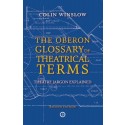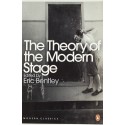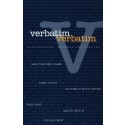Check items to add to the cart or select all
The articles will provide you with a series of photocopiable topics that will guide your students through the major movements of modern drama: explaining what the overall term modernism means in the world of theatre and then examining in detail, the individual movements that make up modern drama, such as naturalism and realism, expressionism, Epic Theatre, existentialism and absurdism.
The articles could make great homeworks, with question sheets at the end of each chapter to assess students’ understanding of each of the movements. The entire collection would be perfect to use as an introduction to Theatre Studies in September for your new students, perhaps one article a week for the first term. Or, they could be consulted when studying a specific playwright or practitioner who has been influenced by a certain dramatic movement, or just to provide inspiration to students who are devising their own work.
Theatre Studies students always have to be aware of the context of theatre and how drama has responded to social, cultural, political and historical events. These articles will enable students to understand how, at the turn of the twentieth century, modern drama was deeply affected by religious changes, political upheavals, scientific advances and sociological and philosophical ideas from the likes of Marx, Darwin, Nietzsche or Freud.
By reading all of the articles, students will have a detailed understanding of topics such as: modernist techniques in drama, how naturalist drama has been influenced by scientific advances, Zola’s influences on naturalism, Andre Antoine’s Theatre Libre, Stanislavski’s search for truth on stage, Compte’s influences on dramatic realism, how Ibsen set the standard as the ‘father of realism,’ how the expressionist movement and the work of Reinhardt, Buchner, Strindberg and Wedekind preceded the likes of Brecht; Piscator’s Epic influences and Brecht’s Epic plays and how they changed the role of theatre from being a source of entertainment, to a learning experience. The collection ends with the completely anti-realist styles such as existentialism and absurdism, focusing upon names such as Sartre, Kierkegaard, Esslin, Beckett and how such anti-realist movements have had a lasting legacy upon modern theatre as we now know it.
We guarantee that this collection will not only provide your students with a comprehensive introduction to modern drama at A Level or Higher Level, but could even be used to prepare them for a degree in modern drama. It is a must for any teacher who wants to open up and extend students’ understanding of what modern drama really is and how it has developed. It provides a brilliant accompaniment to any play written in the twentieth century.
The articles could make great homeworks, with question sheets at the end of each chapter to assess students’ understanding of each of the movements. The entire collection would be perfect to use as an introduction to Theatre Studies in September for your new students, perhaps one article a week for the first term. Or, they could be consulted when studying a specific playwright or practitioner who has been influenced by a certain dramatic movement, or just to provide inspiration to students who are devising their own work.
Theatre Studies students always have to be aware of the context of theatre and how drama has responded to social, cultural, political and historical events. These articles will enable students to understand how, at the turn of the twentieth century, modern drama was deeply affected by religious changes, political upheavals, scientific advances and sociological and philosophical ideas from the likes of Marx, Darwin, Nietzsche or Freud.
By reading all of the articles, students will have a detailed understanding of topics such as: modernist techniques in drama, how naturalist drama has been influenced by scientific advances, Zola’s influences on naturalism, Andre Antoine’s Theatre Libre, Stanislavski’s search for truth on stage, Compte’s influences on dramatic realism, how Ibsen set the standard as the ‘father of realism,’ how the expressionist movement and the work of Reinhardt, Buchner, Strindberg and Wedekind preceded the likes of Brecht; Piscator’s Epic influences and Brecht’s Epic plays and how they changed the role of theatre from being a source of entertainment, to a learning experience. The collection ends with the completely anti-realist styles such as existentialism and absurdism, focusing upon names such as Sartre, Kierkegaard, Esslin, Beckett and how such anti-realist movements have had a lasting legacy upon modern theatre as we now know it.
We guarantee that this collection will not only provide your students with a comprehensive introduction to modern drama at A Level or Higher Level, but could even be used to prepare them for a degree in modern drama. It is a must for any teacher who wants to open up and extend students’ understanding of what modern drama really is and how it has developed. It provides a brilliant accompaniment to any play written in the twentieth century.
You may also be interested in the following product(s)
The Oberon Glossary of Theatrical Terms
£14.99
|
The Theory of the Modern Stage
£16.99
|
Verbatim Verbatim: Techniques in Contemporary Drama
£14.99
|







